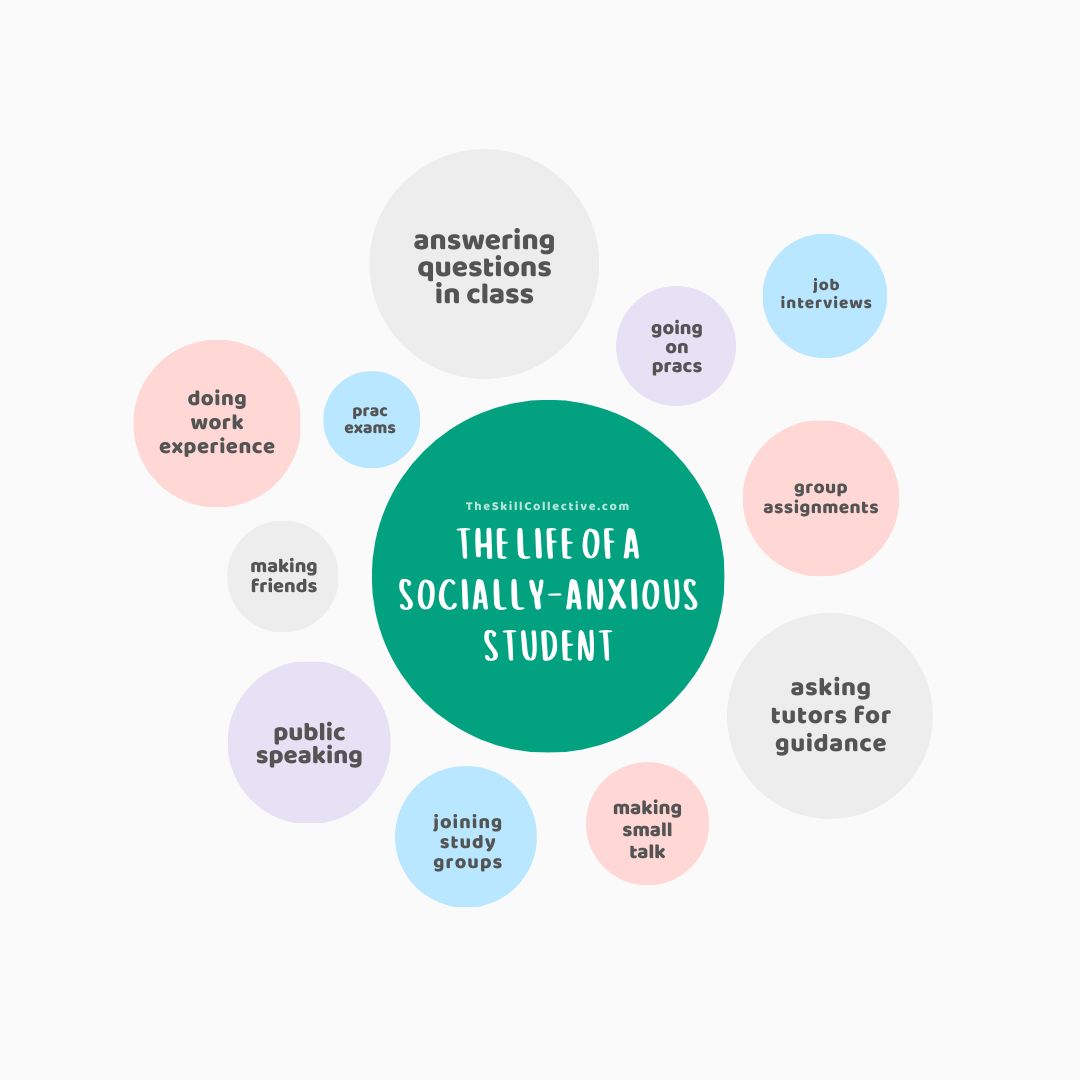ADHD, anxiety, and university students
Struggling with ADHD and anxiety at uni or college? While you may want to do your best, staying on top of assignments, managing unstructured time, and juggling academic and social demands can really affect your ability to focus and concentrate. Learn more about how ADHD affects your uni studies and find tips to help you cope.
The Life of a Socially-Anxious Student
Living with social anxiety as a student can be challenging - speaking up in class, group assignments, public speaking, gaining work experience, making friends … the list of social situations is endless. But there’s no need to suffer further…read on to find how to go from surviving to thriving in your studies.
Anxiety on campus: What students need to know about anxiety and how to manage it
Anxiety is on the rise amongst university students, so what do students need to know about anxiety on campus and how to manage it?



